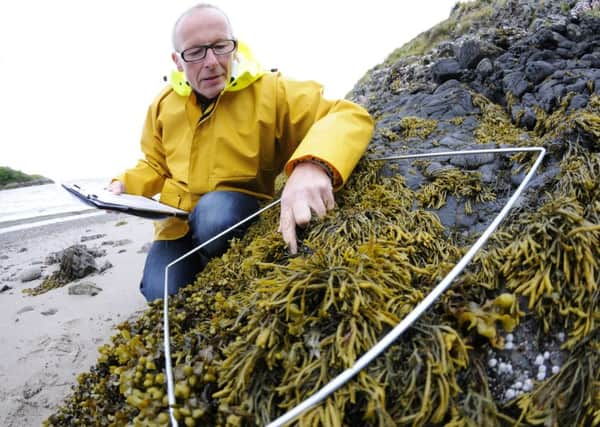Coast project seeks 3,000 ‘citizen scientists’


More than £1.7 million has been awarded to a scheme that will train thousands of people to monitor and protect the UK’s shores.
Designed to further understanding of how the oceans are responding to climate change, the Capturing our Coast project will train more than 3,000 volunteers.
Advertisement
Hide AdAdvertisement
Hide AdCollecting data around key indicator species, it is hoped the new research will help inform future policy and conservation strategies.
The Scottish Association for Marine Science (SAMS) in Oban is the only Scottish partner involved in the UK-wide survey. Professor Mike Burrows of SAMS said: “We are not looking for people to become experts overnight but if a lot of them can gather evidence on little changes we can fit that into a bigger picture. We would like to hear from keen naturalists and those who love the outdoors but the training given as part of the project is also a great opportunity for people who would like to find out more about the natural environment.”
Funded by the Heritage Lottery Fund, Capturing our Coast is led by Newcastle University’s Dove Marine Laboratory and involves a number of other universities as well as collaborators such as Earthwatch Institute, the Natural History Museum, Cefas and the Coastal Partnerships Network.
“Collecting this information about our coastlines is vital if we are to protect them for the future but we can’t do it without the help of the public,” explained project leader Dr Jane Delany, a senior lecturer in the School of Marine Science and Technology at Newcastle University. “What this project aims to do is develop a network of citizen scientists who can help us build an accurate picture of marine life all around the UK – a baseline against which we can better understand the impact of climate change and other environmental and human factors.”
This new project builds on previous work led by Newcastle University through the Big Sea Survey in 2010. Collecting 350,000 separate records over three years, the project identified a number of organisms which had previously not been seen so far north such as the rare stalked jellyfish and an invasive species of sea squirt known as Corella eumyota.
“One of the criticisms of citizen science is the accuracy of the data collected,” said Dr Gordon Watson of Portsmouth University. “What is unique about this new national project is that we will turn all our volunteers into ‘specialists’, working on their own chosen topics or species. The novelty of this new training scheme will allow volunteers to work alongside scientists in an unprecedented way.”
The project is open for volunteers from September 2015.